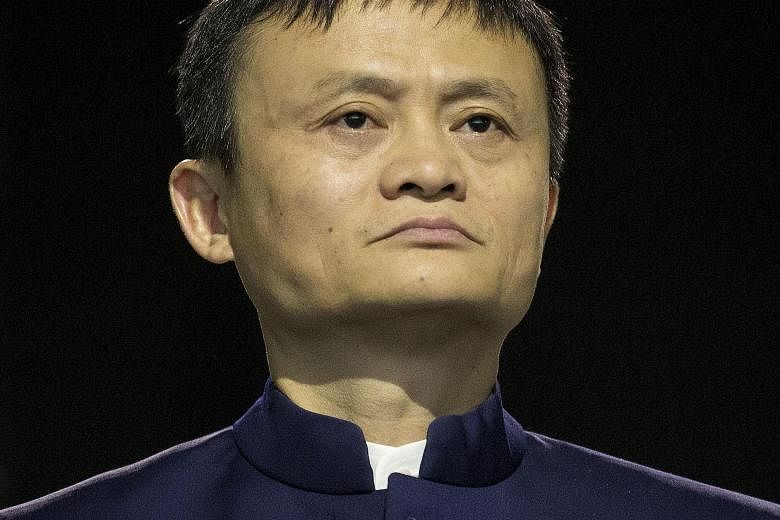HONG KONG • Alibaba Group Holding, the e-commerce giant headed by billionaire Jack Ma, has agreed to pay US$266 million (S$376 million) for the South China Morning Post and other media assets of SCMP Group, in a deal that has sparked fears that the century-old newspaper will lose its independent voice.
In a filing to the Hong Kong stock exchange yesterday, SCMP Group cited an "uncertain" future for traditional publishing as a key reason behind the sale.
The all-cash purchase transfers control of the newspaper from Malaysian tycoon Robert Kuok to Mr Ma at a time of increasing concern about Beijing's control over China's most free-wheeling city.
The media business had been valued at half that amount, and some observers said the hefty price tag showed Alibaba's desire to control the media in the semi-autonomous territory.
Mr Francis Lun, chief executive of Hong Kong brokerage GEO Securities, said the inflated price reflected a political motivation: "If your purpose is trying to control the local media, it has its value. The actual economic benefit is doubtful."
As Hong Kong's leading English- language newspaper, the South China Morning Post reports on issues and topics that are considered sensitive in mainland China, where the websites of several international media are blocked.
Alibaba's executive vice-chairman Joe Tsai, in a letter to SCMP readers, dismissed suggestions that the paper's editorial independence would be compromised. He said the world needed "a plurality of views when it comes to China coverage".
In an interview published on the SCMP website, Mr Tsai accused the Western media of bias against China, saying Alibaba would "see things differently" - a statement likely to stoke critics' concern.
"I think it will be interesting to see if the existing reporters and editorial staff would like to continue to stay. It's worth watching," said Mr James Sung, a political analyst at City University of Hong Kong.
The Hong Kong Journalists' Association said it worried about compromises on China coverage.
In Beijing, those concerned about China's reputation were elated. "This is a good thing," said Mr Wang Wen, a researcher at Renmin University and a former editor of Global Times, a popular Chinese tabloid that often criticises the Western media. "This is an attempt by (China's) social power to alter the country's image," he said, referring to private corporations and others outside the state's direct control.
Some observers said the shift in ownership was not that drastic.
"It is not like SCMP was totally independent from political influence... It was already owned by a business tycoon with close ties to the Chinese government," said Professor Francis Lee, who teaches at The Chinese University of Hong Kong's School of Journalism and Communication.
Alibaba announced the purchase last Friday, saying it will scrap the publication's Internet paywall and that editorial decisions will be made "in the newsroom, not in the corporate boardroom".
On completion of the sale, Mr Ma will join Amazon.com's Jeff Bezos, who bought the Washington Post in 2013, in the club of Internet tycoons taking on storied newspapers struggling in the age of new media.
AGENCE FRANCE-PRESSE, REUTERS, NEW YORK TIMES

